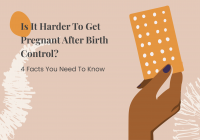Freezing your eggs is one of the most common fertility treatment options for women and people with ovaries who currently aren’t ready to become parents. Chances are you’ve become more familiar with egg freezing after the fertility treatment has become the subject of major news headlines in recent years.
The American Society for Reproductive Medicine declared egg freezing was no longer an experimental procedure in 2012. This accelerated the popularity of egg freezing in fertility clinics across North America. In 2014, Facebook and Apple began paying their female employees to freeze and store their eggs. Egg freezing has also become discussed by celebrities like Kourtney Kardashian and Olivia Munn, both of whom endorse freezing their eggs after doing so themselves.
But how does egg freezing really work? In this guide, we’ll walk you through the ins and outs of this popular fertility treatment and debunk a lot of the misconceptions about freezing your eggs.
IN THIS ARTICLE
- What is egg freezing?
- How does the egg freezing process work?
- Why should I freeze my eggs?
- What is the best age to freeze your eggs?
- How many eggs should I freeze?
- How long can frozen eggs be stored?
- How many eggs survive freezing?
- Is it better to freeze eggs or embryos?
- What is the success rate of egg freezing?
- Is freezing your eggs expensive?
- Is egg freezing painful?
View this post on Instagram
Everything You Need to Know about Egg Freezing
What is egg freezing?
Egg freezing (i.e. oöcyte cryopreservation) is a procedure by which the ovaries are stimulated with hormones to produce multiple eggs to be harvested and stored at subzero temperatures for later use, instead of being fertilized immediately by a partner’s or donor’s sperm. A frozen egg can be thawed, combined with sperm in a lab and implanted in the uterus through in vitro fertilization.
How does the egg freezing process work?
There are three main steps involved in the egg freezing process.
- Discussion and Medical Examination: First, you will need a fertility assessment involving a review of your medical history, blood tests and an ultrasound where your doctor can determine your current fertility status. These investigations include:
- Ovarian reserve testing
- Other hormone testing
- Infectious disease testing – blood and urine or cervical cultures
- Ovarian Stimulation with Hormones: Next, you’ll inject medications to stimulate your ovaries to grow as many eggs as possible.
- Egg Collection and Freezing: At this stage, the fertility specialist retrieves the eggs for freezing and storage.
View this post on Instagram
Why should I freeze my eggs?
Many factors can make a woman a candidate for egg freezing, but in short: if you’re not ready to have kids right now, but know you might want kids later, you should consider freezing your eggs.
Some individuals that are great candidates for egg freezing include:
- Women wanting to delay motherhood, because of your relationships, career, finances, or a range of other reasons
- Women with a family medical history of early menopause, or the loss of ovarian function before the age of 40
- Cancer patients, since chemotherapy and radiation could harm the ovaries and result in the reduction of a woman’s ovarian reserve.
What is the best age to freeze your eggs?
Since fertility naturally changes with age, it plays a significant factor in your egg freezing journey. Egg freezing is not recommended if you’re over 38.
Additionally, the age you become pregnant still matters. For example, let’s say you freeze your eggs at 31 and become pregnant using the frozen egg at 38. By using your younger eggs, you increase your chance of conception and decrease your chances of chromosomal abnormalities.
However, despite the age of the egg used, any pregnancy over the age of 35 still includes the typical risks of advanced maternal pregnancies.
Watch our IGTV with Dr. Tanya Williams, where she addressed common fertility questions about the biological clock and its impact on our well-being.
View this post on Instagram
How many eggs should I freeze?
For a 75 percent chance of live birth, a 34-year-old woman needs to freeze ten eggs. The number of required eggs increases with age. So for a 37-year-old woman, 20 eggs need to be frozen and 61 eggs need to be frozen for a 42-year-old woman.
How long can frozen eggs be stored?
Frozen eggs can then be stored for up to 10 years for future use, when a partner is found and conception does not occur naturally, or if fertilization is later desired in order to become a single mother by choice.
How many eggs survive freezing?
Using the latest method in egg freezing, referred to as vitrification, studies show that 80-90% of frozen eggs survive the thawing process. Vitrification is a “flash freezing” method that freezes eggs almost instantly, reducing the chance that ice crystals will form and damage the cell, compared to slow freezing that takes hours and has a higher probability of ice crystal formation.
Is it better to freeze eggs or embryos?
Unfortunately, not all eggs that you freeze will thaw adequately. Although egg thawing is effective, it’s a much more fragile procedure than embryo thawing, which is when the egg is already fertilized with sperm after being frozen. Since embryos are more durable than eggs, you may decide to freeze embryos with your spouse, partner, or by using a sperm donor.
What is the success rate of egg freezing?
One of the most common misconceptions about egg freezing is that it’s a surefire way to ensure you’ll become a biological parent one day. Unfortunately, egg freezing doesn’t guarantee a later pregnancy. Factors such as age, health conditions, lifestyle, and ovarian reserve all affect your chances of pregnancy.
It’s also important to keep in mind that even if you have a successful egg retrieval, there are still many stages to becoming pregnant. This includes thawing, fertilization, and embryo transfer.
The good news is that egg freezing works better now than ever before, thanks to vitrification, which is the most commonly used method to freeze eggs. Vitrification uses special technology to freeze eggs so quickly that ice crystals don’t have time to form, which increases the success of egg freezing.
Is freezing your eggs expensive?
Freezing your eggs is a financial investment. Although costs vary between clinics, Canadians can expect to pay approximately $10,000 to retrieve and freeze their eggs. There’s also the cost of storing your eggs, which comes at an annual fee of around $300.
When you’re ready to become a parent, you can also expect to pay approximately $5,000 for egg thawing, fertilization, and the embryo transfer. At Dr. Tanya Williams Fertility Centre, we’ll walk you through the cost of your treatment during your first consultation.
Is egg freezing painful?
Some women experience bloating and discomfort during ovarian stimulation (similar to PMS symptoms). The egg retrieval process is done under light sedation and is not painful. After the retrieval, you may experience some mild cramping or pain that you can treat with over-the-counter medication. Typically, you can resume normal activities within a week of egg retrieval.
You’re not alone with your questions and concerns around any aspect of your reproductive health. Fertility specialists at Dr. Tanya Williams Fertility Centre are here to talk to you about whether freezing your eggs or freezing your embryos is the right choice for you.






